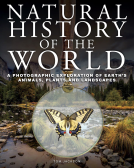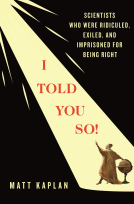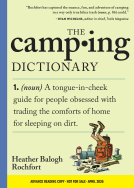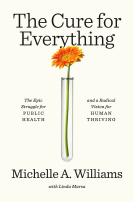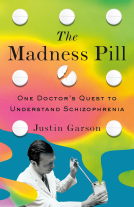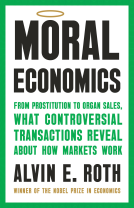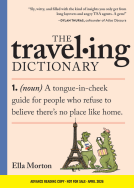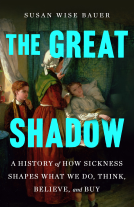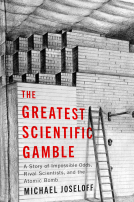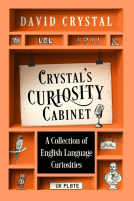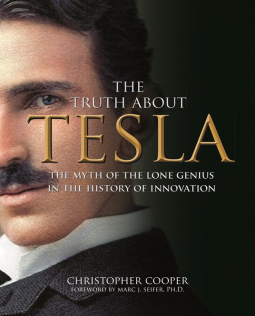
The Truth About Tesla
The Myth of the Lone Genius in the History of Innovation
by Christopher Cooper
This title was previously available on NetGalley and is now archived.
Send NetGalley books directly to your Kindle or Kindle app
1
To read on a Kindle or Kindle app, please add kindle@netgalley.com as an approved email address to receive files in your Amazon account. Click here for step-by-step instructions.
2
Also find your Kindle email address within your Amazon account, and enter it here.
Pub Date Apr 19 2022 | Archive Date Feb 17 2022
Quarto Publishing Group – Chartwell Books | Chartwell Books
Talking about this book? Use #TheTruthAboutTesla #NetGalley. More hashtag tips!
Description
Everything you think you know about Nikola Tesla is wrong. The Truth About Tesla sets the record straight.
Nikola Tesla was one of the greatest electrical inventors who ever lived. For years, the engineering genius was relegated to relative obscurity, his contributions to humanity (we are told) obscured by a number of nineteenth-century inventors and industrialists who took credit for his work or stole his patents outright. In recent years, the historical record has been “corrected” and Tesla has been restored to his rightful place among historical luminaries like Thomas Edison, George Westinghouse, and Gugliemo Marconi.
Most biographies repeat the familiar account of Tesla’s life, including his invention of alternating current, his falling out with Edison, how he lost billions in patent royalties to Westinghouse, and his fight to prove that Marconi stole 13 of his patents to “invent” radio. But, what really happened?
Consider this: Everything you think you know about Nikola Tesla is wrong. Newly uncovered information proves that the popular account of Tesla’s life is itself very flawed. In The Truth About Tesla, Christopher Cooper sets out to prove that the conventional story not only oversimplifies history, it denies credit to some of the true inventors behind many of the groundbreaking technologies now attributed to Tesla and perpetuates a misunderstanding about the process of innovation itself.
Are you positive that Alexander Graham Bell invented the telephone? Are you sure the Wright Brothers were the first in flight? Think again! With a provocative foreword by Tesla biographer Marc. J. Seifer, The Truth About Tesla is one of the first books to set the record straight, tracing the origin of some of the greatest electrical inventions to a coterie of colorful characters that conventional history has all but forgotten.
Available Editions
| EDITION | Other Format |
| ISBN | 9780785840596 |
| PRICE | $17.99 (USD) |
| PAGES | 200 |
Average rating from 10 members
Featured Reviews
Nikola Tesla is an intriguing person to read about and study, mysterious and misunderstood. Undoubtedly he had a brilliant mind for which he was not always recognized. The author of The Truth About Tesla examines the man behind the inventions and genius with research, fascinating photographs and remarkable illustrations. He writes about Tesla's life from birth to his death. He was ethnically Serbian, had connections to Croatia and did most of his patent work and innovations in America.
One of the aspects I like best is that the author compels the reader to ask questions about innovations and inventors themselves. How much can be accomplished as a solitary inventor? How much did/does the inventor "borrow" ideas from others? Clearly ideas are built upon and improved. But then there is the question of patent laws and protection which vary from country to country. Patents were sometimes applied for with the idea in mind, not necessarily the means how to get to the final point. The author also questions Bell's telephone invention...was it him or did he steal the ideas from Elisha Gray? The more we learn, the more we realize what we do not know.
Tesla has three primary inventions attributed to him...should there have been more? Fewer? But his inventions were rarely commercially workable and therefore his investors were reluctant to get on board, though he did get help from big names such as Westinghouse, Astor and Morgan. Tesla also had a poor reputation with money, though he was a clever man. He spoke at conventions and dazzled crowds and met prominent people and celebrities. He often upgraded his offices and research where he could have been more economical. He applied for patents and was successful sometimes, though they expired. Prone to deep depression and nervous breakdowns, he slept little and obsessively worked. He became a recluse and at times was almost penniless. The Great War affected his work as well.
Not only does the author describe Tesla's life and ideas but also how electricity works. The Baghdad Battery is remarkably interesting! If you are even remotely intrigued by Tesla's life, do not miss this.
My sincere thank you to Quarto Publishing Group - Chartwell Books and NetGalley for the privilege of reading this thought-provoking and engrossing book.
While I am not an engineer nor hold a Physics degree, the educator in me was curious about a single word in this book’s title – myth. I’d been led to believe in the greatness of Nikola Tesla and I needed to know why “everything [I] thought [I] knew about Nikola Tesla [was] wrong,” why there was a need for “The Truth About Tesla” and why there was a need to “set the record straight.”
Cooper asks us to consider the fact that Tesla, a revered engineer and inventor, wasn’t as original as we believe. Rather than dispute his genius, Cooper exposes facts that show Tesla borrowed ideas from other inventors and that he put priority in protecting his ‘inventions’ by getting patents quickly.
A point that’s made several times is that inventions are usually the result of work done by many people over time, not by one person working alone. In accepting that thought, I needed to consider other points he highlighted: (1) Tesla was certainly the first to patent the split-phase AC motor, but he wasn’t the first to invent it, (2) Tesla’s name has been given to the ‘Tesla Coil’ but he didn’t even invent this oscillating transformer and (3) Tesla couldn’t have invented wireless transmissions because someone else had succeeded 14 years prior. Accepting these wrongful attributes, Cooper claims, is attributed to history and wisdom, which like US Patent Law, fabricates myths and obscures the true nature of innovation.
I openly admit that although I teach general science, a majority of what was in the core chapters of this book was above my understanding. However, the beautiful illustrations and primary source documents aided in my simplistic grasp of the AC motor, Tesla Coil, electricity, and wireless transmission. I appreciated Cooper’s claim that invention and innovation is a messy process and that there are many great minds working on the same problems and making simultaneous discoveries. Many of these great minds have been forgotten by history and deserve a seat at the table – perhaps a seat that has wrongly been held by someone else.
I don’t feel that Cooper disparaged this Serbian inventor, but rather gave us food for thought. His five myths at the end of the book are a great starting place for further investigation.
I was gifted this advance copy by Christopher Cooper, Quarto Publishing Group, Chartwell Books, and NetGalley and was under no obligation to provide a review.
I loved this book. There are lots of biographies of Tesla but this book is not just another one. It is more a look at Tesla’s inventions, what they were built upon, and how they were perceived in the moment. To do this well, the book had to explore in some detail the science behind AC and DC currents. I found the explanations very clearly written and easy to understand. This was a major weakness of other books I’ve read on the subject. The book was fun to read and I enjoyed its conversational tone. The book also looked at some detail into patents and the court cases surrounding some of the relevant ones. Overall this is a great book and I recommend it for anyone interested in Tesla’s legacy. Thank you to Netgalley and Quarto Publishing Group – Chartwell Books for the advance reader copy.
Readers who liked this book also liked:
Alvin E. Roth
Business, Leadership, Finance, Health, Mind & Body, Politics & Current Affairs

